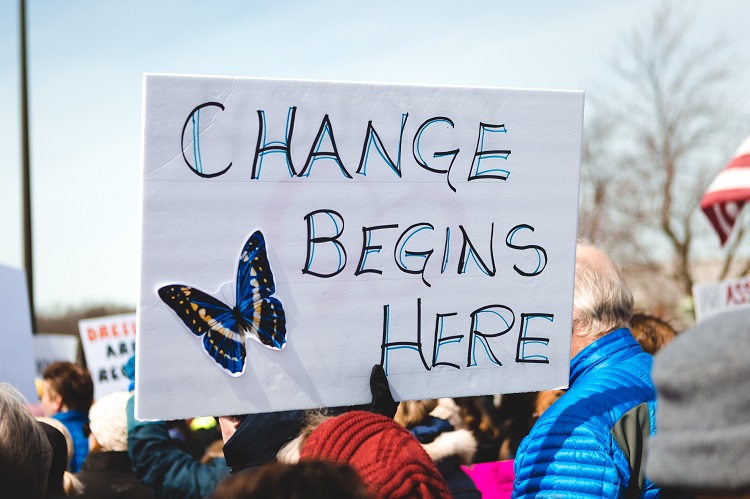May 1 was a quiet Monday—until the majority opinion of Dobbs vs. Jackson Women’s Health was leaked, and the nation erupted into a frenzy of anger and false headlines. A common theme appeared when I browsed Twitter after the leaked opinion: women, so the popular sentiment went, had been reduced to “baby-making machines” in the eyes of our leaders. The public’s response raises profound concerns about the abilities of our fellow citizens (and even of professional journalists) to understand what is happening in Washington. No matter what your ethical position on abortion is, let’s get the facts straight.
So what actually happened?
The Dispatch’s Fact Check did a fantastic job discussing the reality of the case, and we will add to the conversation by brainstorming ways to prevent such confusion in the future.
What is Roe v. Wade?
In 1973, Justice Harry A. Blackmun’s majority opinion on Roe v. Wade expressed that states’ restriction of abortion violated the due process clause of the Fourteenth Amendment. This violation was attributed to a “right to privacy” that the Court saw implied in the due process clause, which states that no state shall, “deprive any person of life, liberty, or property, without due process of law.” The dissenters in this case worried that the Court was reaching outside its power to invent a Constitutional right to abortion that would strike down all existing state laws. If the initial, leaked opinion in Dobbs v. Jackson Women’s Health is confirmed in the coming months, the Supreme Court will simply be returning the decision about the legality of abortions before 23 weeks’ gestation to state houses and to Congress, where people can raise their voices with a vote.
Will abortion be banned now?
If the Supreme Court upholds what was leaked, it still will not have “outlawed” or “banned” abortion.States will again be allowed to pass restrictions on abortion or, on the other hand, codify the legality of abortion—the decision must only pass through the people’s vote. The New Yorker released an article on May 11 with the headline, “The Devastating Economic Impacts of an Abortion Ban,” which states that Dobbs will ban abortion in the United States and cause economic disaster for women who become mothers. And the New Yorker author, Sheelah Kolhatkar is not the only one who believes this: a 2019 poll cited by The Dispatch reports that 66% of people believed if Roe v. Wade were overturned, abortion would be banned nationwide. As we noted above, this is not true, and the article’s inaccuracy is spreading fear and mistrust. This is irresponsible journalism. What is true is that overturning Roe would give people the option to choose how far abortion can go in their own states by voting for state legislators and congresspeople. In short, it’s not aimed at restricting choice or the people’s voice—it’s a matter of taking this case closer to the people.
Is it okay for the Court to reverse precedent?
Other social media posts have complained about the Supreme Court reversing precedent, as if this has never happened before. Fortunately, the Supreme Court’s job description includes admitting when it has been wrong, either in its misapplying the Constitution or in overstepping its boundaries. Without this function, Plessy v. Ferguson, which allowed racial segregation, could not have been overturned by Brown v. Board of Education, which applied the Constitution’s principles of equal rights. There are hundreds of other overturned decisions that have reaffirmed the Court’s responsibility to correct a mistake.
How do we stop false information?
As attentive citizens, it is important that we take responsibility for helping our peers understand political processes, promoting educational and accurate content, and personally investing time and effort to read more than the headlines. 48% of Americans believe the government should keep media companies accountable for fake news circulated on their online platforms, according to a Pew Research poll. If not through government action, the majority of Americans surveyed agree that Big Tech should intervene with more oversight. These people would rather outsource their responsibilities to the government than challenge our fellow Americans to act with integrity. There are few individuals who will rise to the challenge; let us focus on equipping ourselves and our neighbors to understand what’s happening, rather than bombarding them with opinions. This approach is possible, and it is amazingly refreshing to our friends, family, and Instagram and Twitter followers.
It is nearly impossible to be neutral on the issue of abortion, but the heart of this case is about keeping personal decisions close to the people and ensuring the proper exercise of judicial power. Discourse and disagreement are important in our democracy, but dramatically distorting facts about the role and actions of our government is the path to distrust and downfall.



